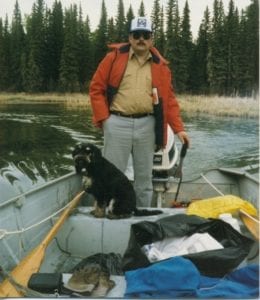
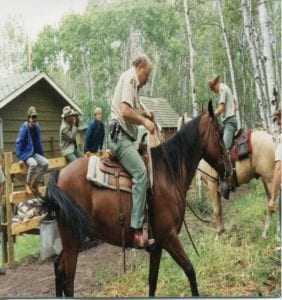
Greg Keesey and Boots on Kingsmere Lake. Horsemanship Training – Prince Albert/Waskesiu National Park
“What did you like least about being part of the service?”
(30:36) I’m really happy to say that the time I was there, things went fairly smoothly. Most people had a really good understanding of national parks, Compared to what has happened after I left, I have absolutely nothing to complain about.
“Especially your generation, that I’ve spoken too, feel that they were there at the best of times.”
Yep.
“I don’t know if you know Gerry Campbell?”
Funny, I thought of Gerry on the way down today. I met Gerry once in his office in Riding Mountain, just after I moved to Waskesiu. He was really, really busy that day and didn’t have much time to talk…
“I didn’t realize how poorly paid that first generation of wardens were.”
We never thought about it back then. We just got money every two weeks, we did our job and we loved it. It was later on that we realized how poor it was. The RCMP and these other (organizations) were getting a lot more money. But you know when I put everything together, I still never wanted to quit, maybe because that is all I knew.
“Did the service change a lot over the years that you were there?”
(32:50) I guess there were a lot of changes. During my Kootenay days from 1969 until 1974, there was very little office work, other than to keep our diaries and game cards up to date, and to complete reports on any rescues/recoveries or other incidents, such as highway traffic, poaching, etc, that we had encountered. There were three districts, all on the highway and accessible to the public. We were expected to patrol the backcountry to ensure appropriate public safety and resource protection situations were kept to a minimum. We also worked very closely with the trail crews and other sections. Since we had a “through highway”, we spent considerable time pounding the pavement, dealing with speeders, public safety and wildlife protection issues. Between horse and hiking trips, checking the weather stations in Vermillion Pass weekly, I would say we had our share of backcountry work, which, at times, we might have taken for granted, but now can really appreciate how lucky we were.
The Pukaskwa days from 1974 to 1983 were similar in regards to backcountry work, but this new, wilderness and undeveloped park had almost no visitors. We had the responsibility of completing the Resource Description and Analysis and carrying out numerous bathymetric, limnology surveys on our inland lakes, annual and ongoing caribou surveys on the “relic” population and numerous other research. Much time was spent on Lake Superior transporting botanists, wildlife biologists, and countless other groups up and down the 50 or so miles of coastline of rugged Canadian Shield. There were several drownings in that lake and in some of the inland lakes inside and outside the park that kept us busy. We worked really closely with the Ontario Provincial Police. Along with lots of year-round backcountry work, the organization starting having us “justify” everything we did. Funding became tighter and wardens started sitting at desks assisting with budget and business plan issues.
Now, back to an operational park, Prince Albert. My first winter of 1983/84 was spent in the backcountry from October to spring with Luther Ferguson. My best friends were Luther, my double track ski-doo, my little 14” homelite chainsaw, axe, the PT 500 portable radio, and snowshoes. Of course, we had lots of food, guts and the odd session begging a higher power to allow us to stay on top of the ice when crossing lakes. In those early days in Prince Albert National Park, there were still districts, clearly defined on our topo maps. Each permanent warden had a district and in the ‘80s, we spent a lot of time out in these districts. Many of the outlying district station cabins from the ‘70s were decommissioned (burned, I think is the term that best describes the fate of some of them). Although much of our time was spent on backcountry duties, the Waskesiu townsite, like most, demanded a great deal of time in the high visitor season.
When the ‘90s rolled around, things in all parks changed drastically, with a real change to justifying funding, person power and projects. Now we had to pay other sections within the organization for services as we would outside contractors and agencies. It became harder and harder to get things done as there seemed to be a more hoops to maneuver through and “turf wars”. Another major movement was a shift from “babysitting” the public to “Visitor Risk Management”. I initially had a hard time with this concept, but it soon became apparent that the hours and hours of checking trailheads at day’s end to ensure everyone returned safely after registering with us was not the smartest or most efficient way to deal with backcountry registration issues. Now, the funding and effort went into public education and the major shift towards placing the onus directly on the visitor to either register with us or with leave trip details with a friend. Why didn’t we do this long ago? As time went by, the shift towards research and office work really became the trend. Goodbye to the good old days when we knew most of the backcountry like the back of our hand, and hello to a nice comfortable chair and the fastest computer with the biggest screen we could scam!
“What about the warden service was important to you? Was it the idea of protecting national parks or like you said talking to people and helping them enjoy national parks?”
(33:12) Those were the big things, yeah, I felt very strongly about trying to get through to people what national parks meant and what they were there for, and how they should be looking at things and doing things. And then trying to get their viewpoint on it and listening to them. I thought a lot of times we were hesitant to listen when we should have been.
“Is there anyone you worked with who really sticks out in your mind? You’ve mentioned a few Mac Elder, Ron Davies…”
(34:08) You’ve just hit the nail on the head, Mac ElderI didn’t know Mac before I met him in Pukaskwa and just as I said he became a very good friend. They liked us to stop in all the time on our way through (Cochrane). I have a really interesting story about Mac. When we lived in Marathon, he lived just around the corner and he used to pick me up when the park office was in Marathon. He would pick me up quite a lot in the morning and I was usually ready to go and at the door when he arrived. This one morning, the first thing I knew, I heard this voice at my bedroom door. I looked up and there is Mac in full uniform, including the Stetson at my bedroom door and all he said was, “Keesey get the hell out of bed!” He said, “There is only one kind of person in this world who can make their money lying in bed!” That was one of his favorite expressions! And Mac’s other expression that I say to him every time I leave is, “See you in church!” Having talked about Mac, almost everybody I worked with was great to work with. I met so many wonderful people and a lot of people who taught me an awful lot. Unfortunately, I never got to ride horseback with Mac. We were never around horses together. I have to take his word from him that he can ride a horse!
“Is there anything about the warden service as you knew it, that you would want future generations of wardens to know?”
(36:28) I think the warden service, especially when I first started was a way of life, it wasn’t a job. I don’t think that it was ever a job for me. It was something that I always thought, I was the luckiest person in the world to be able to go to work and do all those things. It just didn’t seem like work to me. I don’t know, maybe for a lot of people being in the Parks service is still that way and I sure hope it is. But for some of the people I left behind, I don’t think it was a way of life much anymore, I think it was just a job that they had to do. I feel badly for them…I think that I was there in some of the good times. A lot of the people before me like Mac would say that they started in the good times and that is good. Things sure changed from those days though. My longest stint in the backcountry I think was ten days. That was peanuts for some of the old timers.
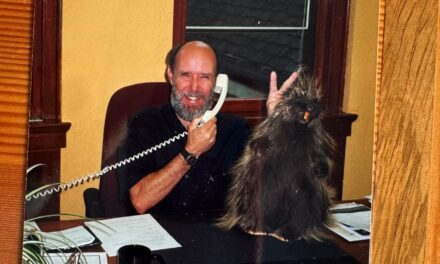
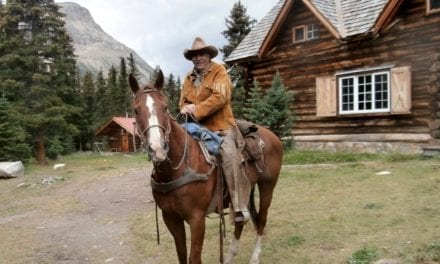
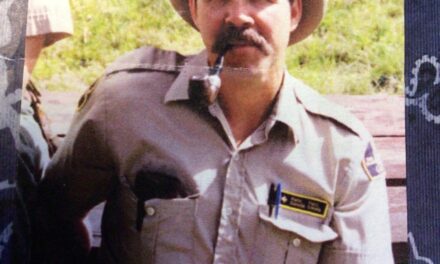
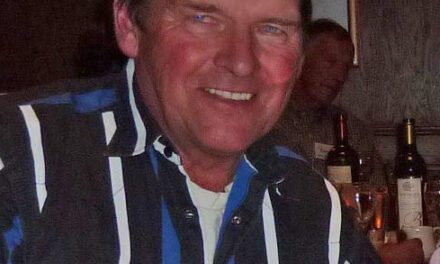
Hi Folks,
I loved this article. I grew up in Unity with Greg Keesey
Reading this article really tugged at my heart strings
I live in Toronto now where I have been since 1972
Please say Hello to Greg for me.
Cheers,
Rick Tufts